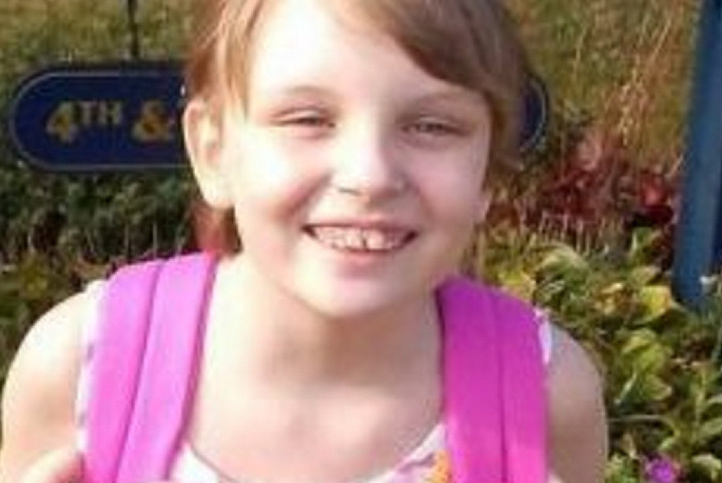A legislative committee will decide Friday whether to launch an inquiry into Maine’s system for protecting children from abuse following the death of a 10-year-old Stockton Springs girl whom police say was beaten for months.
The Legislature’s Government Oversight Committee will decide whether to examine the work of Child Protective Services, which investigates cases of suspected child abuse for the Department of Health and Human Services. The inquiry would be conducted by the Office of Program Evaluation and Government Accountability.
Marissa Kennedy’s mother, Sharon Carrillo, and stepfather, Julio Carrillo, are charged with murder in the girl’s Feb. 25 beating death. Sharon Carrillo’s attorney told the Portland Press Herald that her client has intellectual disabilities and was abused by her husband.
The case has focused attention on the state’s Child Protective Services system. The family had moved from Bangor to Stockton Springs last fall, and Marissa Kennedy had not been in school since November, according to Maine State Police. Neighbors and school officials in Bangor have said they reported multiple times to DHHS that they suspected the girl was being abused. Department officials have declined to comment on the case.
State Rep. Patty Hymanson, D-Wells, co-chair of the Legislature’s Health and Human Services Committee, asked the oversight committee to take up the case.
OPEGA is the Legislature’s independent, nonpartisan watchdog agency. Under the direction of the Government Oversight Committee, it evaluates the performance of state government programs and compliance with laws and regulations.
Beth Ashcroft, OPEGA director, said the agency’s inquiry could take as little as three months if it is fast-tracked and given top priority. Ashcroft said an OPEGA review would typically examine an agency’s overall operations, including staffing, policies and procedures, and not individual cases.
“What does it take to respond in a timely manner and effectively?” Ashcroft said.
Hymanson, a physician specializing in neurology, wrote in her review request that it is “of tremendous importance that the existing child protective laws and system are adequately and consistently protecting the children they were designed to serve,” and that a “thorough investigation” is needed.
Police allege that the Carrillos beat Marissa every day from October until her death using a leather belt, their fists and in one case a metal mop handle, which Julio Carrillo allegedly broke against the girl’s ribs, according to an affidavit filed in Waldo County District Court.
The Maine Child Death and Serious Injury Review Panel, made up of two dozen professionals representing law enforcement, medicine, social services and other disciplines, will also investigate Marissa Kennedy’s death, but panel members said they typically wait until after a criminal investigation is completed to launch their own review, which will look at the DHHS response. DHHS is also conducting its own internal review.
Senate President Mike Thibodeau, R-Winterport, has asked Gov. Paul LePage to conduct an investigation into how DHHS handled the case. The governor’s office responded that DHHS was already conducting an internal investigation, as was the injury review panel.
Karen Mosher, a retired Augusta psychologist and member of the injury review panel for more than 20 years, said the panel must wait until a criminal case is resolved before it can start its own review. This can result in substantial delays, but Mosher said the panel doesn’t want to interfere with criminal proceedings, which generate more facts for the panel to examine.
“Doing things the right way is never fast,” Mosher said. “It’s a real conundrum, and one that we feel, but everyone has a role. We can’t save this poor little girl, but we can make this state a safer place for other children.”
The 2017 annual report by the ombudsman for Maine Child Welfare Services found that 25 of 72 complaints about how CPS handled abuse investigations – from October 2016 to September 2017 – were valid.
“Multiple cases involved failure to follow assessment policy, failure to follow safety planning policy, or failure to recognize risk to children in their parents’ care,” the annual report said.
Christine Alberi, the ombudsman, said Tuesday that even though the sample size the ombudsman examined was small – there are about 8,000 referrals of suspected abuse to Maine CPS every year – she believes the problems are systemic.
“I have found over the years that despite my small sample size, I believe what I’m finding is representative of what happens throughout the department,” Alberi said.
A U.S. Department of Health and Human Services report that compared child protective services systems across states found that in 2016 Maine was about average in terms of caseload for CPS investigators and timeliness in responding to complaints. The number of children in state care in Maine, including the foster care system, increased from 1,322 in 2011 to 1,852 in 2017.
Joe Lawlor can be contacted at 791-6376 or at:
jlawlor@pressherald.com
Twitter: joelawlorph
Send questions/comments to the editors.




Comments are no longer available on this story